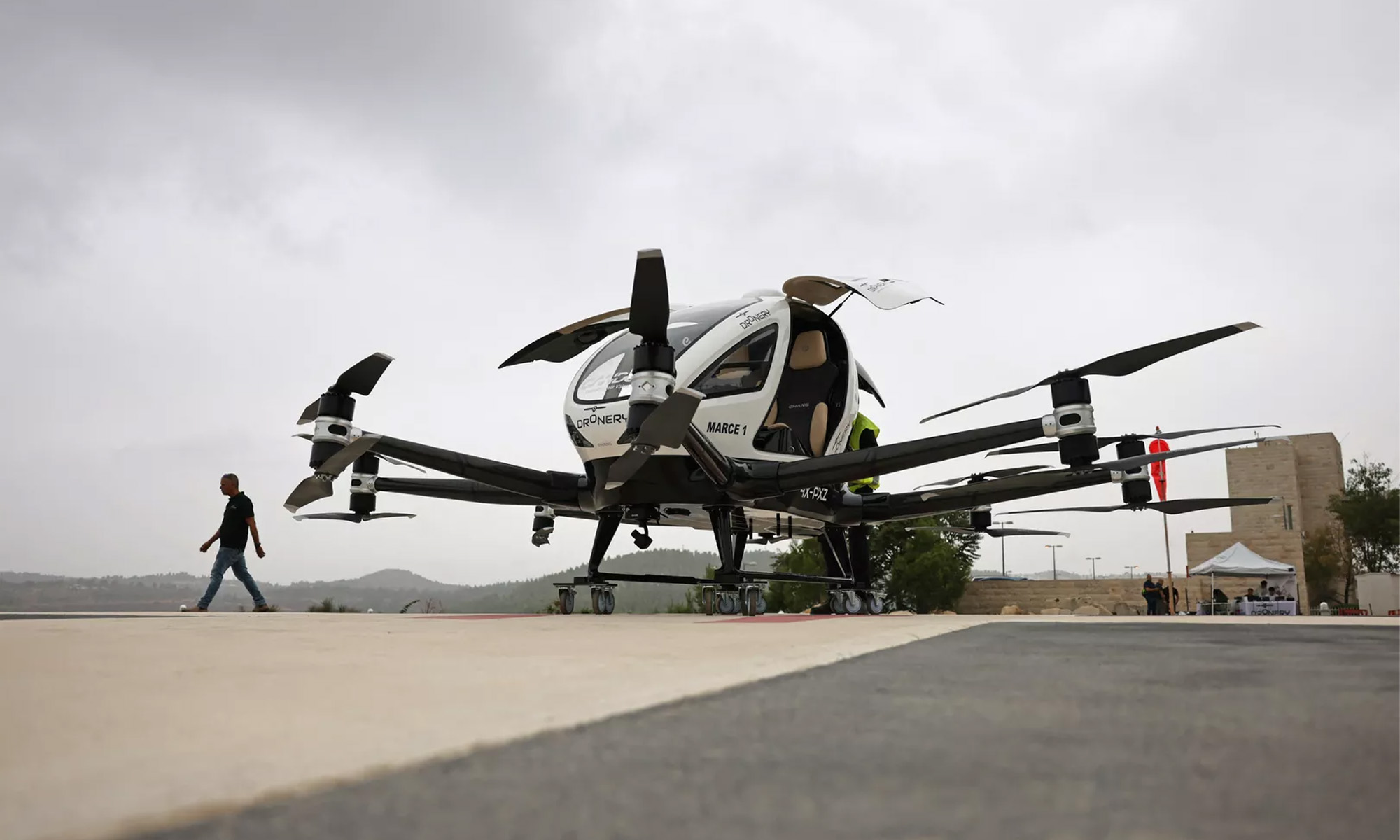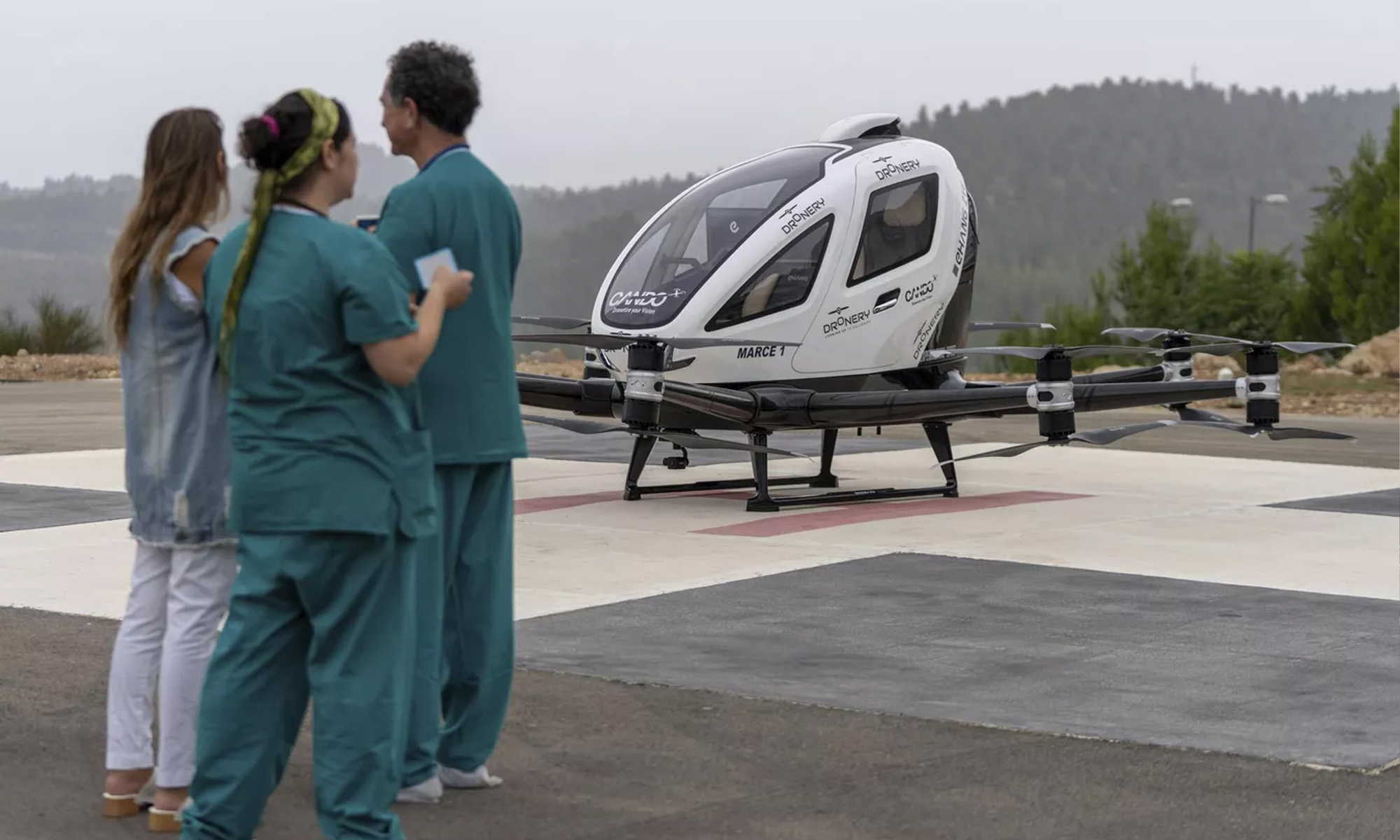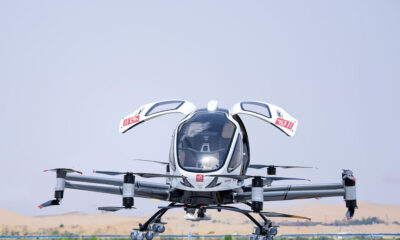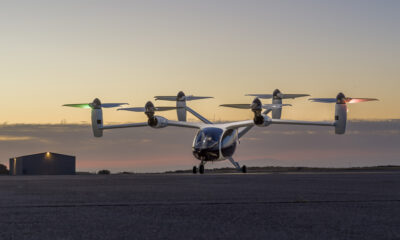News
Air Taxis Fly Over Jerusalem As Israel Creates Airspace Network
Demo flights of the Chinese-made Ehang two-seater air taxi have commenced from Jerusalem’s Hadassah Hospital.

Israel has expanded air taxi test flights across urban areas of Jerusalem in preparation for a new drone delivery network of heavy cargo and passengers.
The demonstration, which showed how drones could ease congestion in the busy city, is part of a $15.7 million government pilot project known as the Israel National Drone Initiative (INDI).
The tests began with a half-hour flight of a long-distance Chinese-made electric vertical takeoff and landing (eVTOL) drone from Jerusalem’s Hadassah Ein Kerem Hospital. The setting for the tests is significant, as the government plans to use the drones for life-saving missions, as well as cargo and passenger purposes.
“What we’re looking at here is how Israel’s National Drone Initiative is expanding its scope to move beyond transporting packages to transporting human beings,” explained Daniella Partem, senior director at the Israel Innovation Authority. “We are looking to improve the economic viability of this model and advance connectivity in urban areas and further afield around the world”.

The air taxi test was performed by Dronery, a subsidiary of the Israeli drone delivery fleet operator Cando Drones. The fully autonomous EH216 aircraft can carry a 250-kilogram payload for 30 kilometers using an intelligent command-and-control system that includes a real-time video feed.
“The possibility of flying the aerial taxi in the early stages within an urban area as complex as the Hadassah Medical Center is a practical realization of the Transportation Ministry’s belief [in smart transportation],” said Cando Drones CEO Yoeli Or. “Cando and Dronery are the first in Israel to bring and fly heavy drones capable of flying significant distances and carrying over 200 kilograms”.
Also Read: Blinx Brings Fresh Storytelling & News To Middle Eastern Youth
During a recent June demonstration, the startup AIR also tested its own all-electric eVTOL, known as AIR ONE. The craft features collapsible wings for easy storage and is marketed as an everyday alternative for short city commutes.
Other Israeli companies involved in the INDI project include Airwayz Drones, a provider of AI-based smart management systems for drone fleets; HighLander, which has developed a traffic management system for drones; and Robotican, a producer of ground and air-based autonomous robotic systems.
News
Samsung Smart Glasses Teased For January, Software Reveal Imminent
According to Korean sources, the new wearable will launch alongside the Galaxy S25, with the accompanying software platform unveiled this December.

Samsung appears poised to introduce its highly anticipated smart glasses in January 2025, alongside the launch of the Galaxy S25. According to sources in Korea, the company will first reveal the accompanying software platform later this month.
As per a report from Yonhap News, Samsung’s unveiling strategy for the smart glasses echoes its approach with the Galaxy Ring earlier this year. The January showcase won’t constitute a full product launch but will likely feature teaser visuals at the Galaxy S25 event. A more detailed rollout could follow in subsequent months.
Just in: Samsung is set to unveil a prototype of its augmented reality (AR) glasses, currently in development, during the Galaxy S25 Unpacked event early next year, likely in the form of videos or images.
Additionally, prior to revealing the prototype, Samsung plans to introduce…
— Jukanlosreve (@Jukanlosreve) December 3, 2024
The Galaxy Ring, for example, debuted in January via a short presentation during Samsung’s Unpacked event. The full product unveiling came later at MWC in February, and the final release followed in July. Samsung seems to be adopting a similar phased approach with its smart glasses, which are expected to hit the market in the third quarter of 2025.
A Collaborative Software Effort
Samsung’s partnership with Google has played a key role in developing the smart glasses’ software. This collaboration was first announced in February 2023, with the device set to run on an Android-based platform. In July, the companies reiterated their plans to deliver an extended reality (XR) platform by the end of the year. The software specifics for the XR device are expected to be unveiled before the end of December.
Reports suggest that the smart glasses will resemble Ray-Ban Meta smart glasses in functionality. They won’t include a display but will weigh approximately 50 grams, emphasizing a lightweight, user-friendly design.
Feature Set And Compatibility
The glasses are rumored to integrate Google’s Gemini technology, alongside features like gesture recognition and potential payment capabilities. Samsung aims to create a seamless user experience by integrating the glasses with its broader Galaxy ecosystem, starting with the Galaxy S25, slated for release on January 22.

























